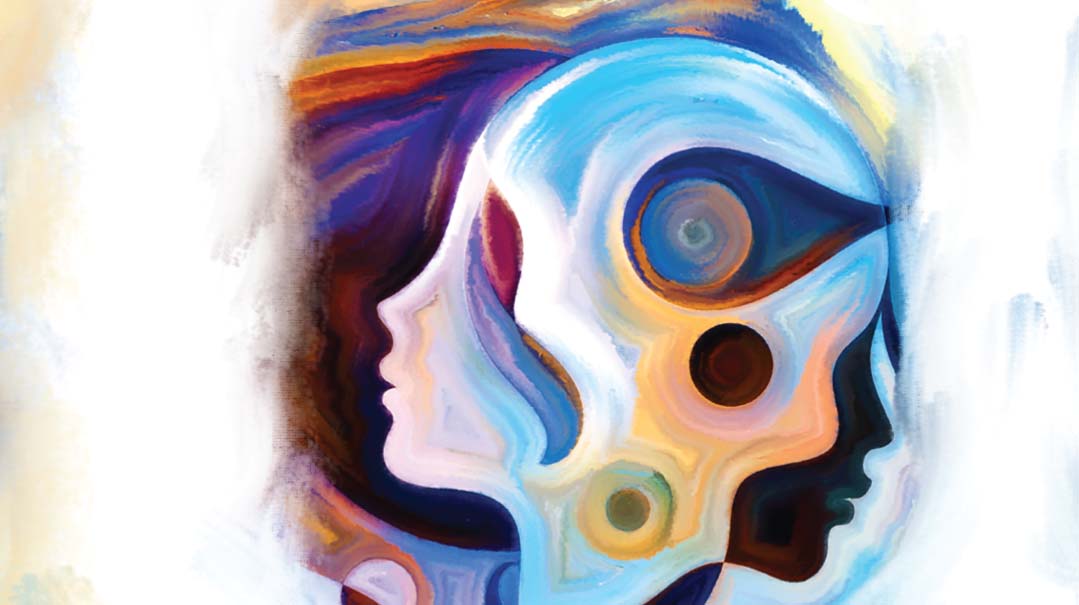True Justice

We yearn for insightful guidance on matters of body and soul, but our intentions aren’t self-serving

Imagine Mashiach arrives today. He sounds the "shofar gadol," redeeming our assimilated brethren from lives of spiritual futility, and delivers them home to our Holy Land. Simultaneously, the shofar mobilizes us to wash away the spiritual filth accumulated over years of galus and return home to Eretz Yisrael. A unified Klal Yisrael converges at the gates of our land and… what happens next?
The Gemara (Megillah 17b) teaches, "And once the exiles have been gathered, we will impose justice on evildoers, as it says, ‘v’etzrof kabor sigayich’ " (Yeshayahu 1:25). Rashi explains this phrase as referring to the process of smelting ("etzrof") an amalgam of silver and bronze, called "sig" (sigayich), to extract the silver and discard the dross ("bor"). He likens it to extracting reshaim, evildoers, from the righteous members of Klal Yisrael.
The next pasuk (ibid. 1:26) declares, "V’ashivah shoftayich k’varishonah — and I will restore your judges as they were in the beginning." The flow of pesukim in Yeshayahu teaches that after the ingathering of exiles, Hashem will eradicate the reshaim from within us and reinstate our judges. This is the rationale for instituting "Hashivah shofteinu k’varishonah, v’yoatzeinu k’vat’chilah" as the next brachah in the Shemoneh Esreh; its theme logically follows the previous brachah, teka b’shofar gadol.
Rav Chaim Friedlander adds a practical point: While mired in galus and subject to the governance of foreign rulers, our judges are incapable of functioning in an unlimited, absolute capacity. Therefore, a primary goal after kibbutz galuyos is restoring our judges to their optimal role within Klal Yisrael.
Judges and Advisors
Our brachah opens with a reference to shofteinu and yoatzeinu, our judges and our advisors. Who are these people we yearn for? Do they assume the same role?
Rav Uri Weissblum (He’aras Hatefillah) explains that Chazal (Piskah Rabasi) distinguish between shoftim and yoatzim: "Shoftayich — these refer to Dovid and Shlomo. Yoatzayich — these are Moshe and Aharon."
Rav Avraham ben HaGra explains shoftim to be those who carry the responsibility to rule the nation (like Dovid and Shlomo), while yoatzim establish the precepts and laws (as did Moshe and Aharon).
Our Torah communities in Eretz Yisrael and chutz l’Aretz are spiritual strongholds worthy of abundant pride. This is despite numerous governments’ repeated, calculated attempts to arbitrate religious issues. In many countries in chutz l’Aretz, we’ve watched intrusive bureaucrats challenge our hallowed education system, imperil bris milah, and contest the legality of shechitah, among other things. In Eretz Yisrael, our own unfortunate brethren have endangered our chinuch system, passed laws legalizing the desecration of our holiest days, and attempted to criminalize sustained Torah learning. In both venues, gender fluidity is no longer the progressive sentiment of a scattered few, but has been adopted by the masses as acceptable doctrine.
Is it any wonder we yearn for the shoftim and yoatzim of yore? Even in a land as predominantly Jewish as Eretz Yisrael, and certainly in countries with a secular majority, the realities of galus weigh heavily on our viability as a frum entity who wish to live in accordance with His Will.
And nothing better encapsulates the feelings of frustration and impotence in the face of this reality than the age-old "krechtz" uttered by Jews for nearly two millennia. It’s the natural response to life dominated by an antagonistic or uncompromising secular authority, as Mishlei (29:2) teaches, "Bimshol rasha ye’enach am — the nation groans under the dominion of evildoers."
Indeed, this is the "yagon v’anachah" referenced in our brachah, "v’haseir mimenu yagon v’anachah — remove anguish and groaning from us." Yagon (anguish) is distress born of rumination, the overthinking we engage in that sinks us to a deeply distressed emotional space. Anachah (groaning) is our response to actual physical misfortune or emotional torment we’re subject to.
Whether we express yagon or anachah, the remedy to both is in restoring our shoftim and yoatzim, the emissaries tasked with teaching and enforcing laws synchronized with our life as elevated Torah Jews. Imagine living in a country legislated and adjudicated by the likes of Moshe and Aharon, Dovid and Shlomo.
Uncertain No Longer
One of the difficult aspects of life is grappling with uncertainty. If we knew this shidduch was the right one, we’d be spared the pain of indecision. If we knew this career choice was a perfect fit, we’d be more confident during schooling and training. Often it’s the state of not knowing that depletes us more than the actual process and outcome.
Rav Uri Weissblum (ibid.) teaches that “yoatzeinu” were the Torah greats who guided with definitive spiritual advice, thus removing the obstacle of uncertainty. In a similar vein, the Vilna Gaon (Mishlei 16:4) says, “In the days of the neviim, one could approach a navi to seek out Hashem, and through nevuah, the navi would guide a person to the path he should follow according to his substance of soul and his body’s disposition.”
Imagine receiving guidance from a navi on how best to actualize your physical and spiritual temperament: how to invest your spiritual energy, where to focus your middos work and how to effectively excise negative traits, guidance on maximizing your talents and gifts, understanding your core mission in this world… the possibilities are endless. This is the “yoatzeinu” we daven for in this brachah.
We yearn for insightful guidance on matters of body and soul, but our intentions aren’t self-serving. “U’mloch aleinu atah, Hashem, levadcha.” Ultimately His desires are our desires, our request for fitting shoftim and yoatzim is a means for Hashem alone to regulate our lives. We daven for a life unencumbered by rogue government advisors or by our own misdirected inclinations.
And when Hashem is King over all governing bodies, His rule is guaranteed to be “b’chesed uv’rachamim,” a kind and merciful authority. His kind and merciful governance is articulated by “v’tzadkeinu bamishpat,” He justifies in judgment. When a person is tried for an infraction in court, the judge is primarily concerned with the crime committed. The defendant’s personal story is far less relevant to the outcome of the trial. The fact that the defendant was having a bad day, didn’t sleep well the night before, argued with his spouse that morning, or suffered any other sort of personal setback is immaterial. The focus is the crime.
When Hashem judges, He considers the big picture. He knows our weaknesses and imperfections, our quirks of personality, and emotional soft spots, and He judges with a sweeping outlook that encompasses it all. He takes our tough morning into account; our fight with a loved one is a consideration. He cares that we were sleep-deprived when we messed up. This is the justification He affords us in judgment, the tzedek in mishpat.
We yearn for the judges and advisors of yore whose judgment and guidance, together with Hashem’s tzedek b’mishpat, will bring us back to serve “atah, Hashem, levadcha.”
Mrs. Elana Moskowitz has been teaching in seminaries for nearly 20 years.
(Originally featured in Family First, Issue 855)
Oops! We could not locate your form.




